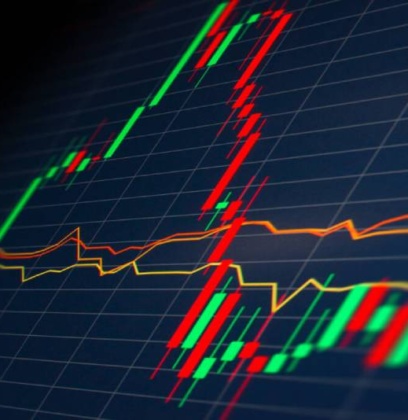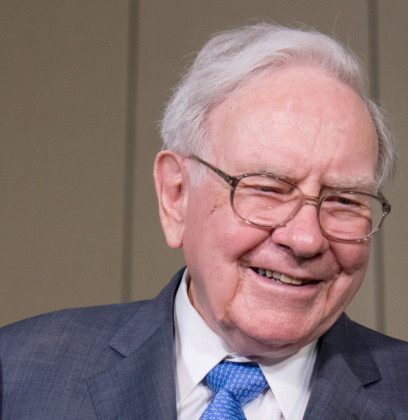The global market is currently marked by uncertainty and unpredictability, a result of the political upheaval that we’ve seen in the past decade. As such, it’s imperative that Australian investors look at the larger political landscape when determining which global markets offer future growth potential.
Markets may be much healthier than they first appear to be, especially in the UK, where businesses are generally performing well. Keeping on top of global market trends will help investors identify opportunities for diversification that can mitigate risks. Further, despite the apparent challenges, astute investors may discover that closer examination reveals a UK market ripe with opportunities for robust returns.
In this market performance analysis, we’ll take a closer look at the current US and UK market trends to discern how they are adapting to the ongoing changes in global trade and politics, in turn, allowing Australian investors to harness the underlying market strengths to their advantage.
Unpacking The UK Market
The UK market has consistently underperformed in the past few years. UK companies are, by and large, hitting the metrics that would typically define a healthy market, yet that hasn’t been reflected in the overall market.
There’s currently a contrast between UK corporate health and overall market outcomes. Despite UK companies consistently posting strong profits, the broader political landscape has overshadowed these successes. Any market performance analysis has to factor in the political risks in investing, and nowhere is that seen more keenly than in the UK.
Political Factors as Overriding Influence
The biggest single political factor that has influenced the current state of the UK market has been Brexit. Despite the UK leaving the single European market four years ago, things have still not settled. Investor sentiment has been influenced by labour shortages and a reduction in trade with neighbouring countries, which has led to a decline in investors putting capital in the UK economy.
While UK companies continue to perform well, the long-term uncertainty surrounding the UK’s market has made investors hesitant to invest, resulting in market performance that is at odds with the strength of the companies that operate within it.
Political Influences
Brexit would have had a destabilising effect on the UK economy regardless of the outcome, but some argue the issues were exacerbated by ineffectual political management.
The handling of Brexit presented a challenging period for the UK, wherein leadership decisions influenced the UK’s market and investment climate. Decisions made during the transition phase were critiqued for involving individuals who may not have had the necessary experience and expertise. The agreement reached near the end of December 2019 provided limited time for businesses to adjust, contributing to an uncertain economic outlook that concerned investors.
With a change in government, there is an emerging sentiment that the political environment may become more stable. Labour’s recent election victory brought forward a manifesto focused on economic revitalisation, suggesting to the market that investment in the UK’s economy is welcome. Over time, policies implemented by the new government are hoped to align closely with the inherent strengths of UK businesses, fostering a more conducive atmosphere for growth.
The US and Its Potential Impact on Market Performance
The US has historically been the world’s leading market by a significant margin. It’s not uncommon for 50% of portfolios to be allocated to the US due to its company strength and overall thriving market. The US excels in two areas, technology and healthcare, which are high-growth and drive economic progress.
With that said, the US is not immune from fluctuating global market trends. Though it has a higher capacity to withstand the shakes of political turmoil than other markets, the ongoing political divisiveness within the country has the potential to upend the US’s reputation as the standard bearer of a healthy market.
Attacks on key political figures and unpredictable election cycles will always impact an investor’s assessment of a market. In this sense, the political instability that we see in the US may mimic what we’ve witnessed in the UK. US companies are reporting strong, consistent profits, but the overall market may be overshadowed by political uncertainty.
U.S. Market Dynamics
Upon taking office in January 2025, President Trump implemented a series of protectionist trade measures aimed at reducing the U.S. trade deficit and promoting domestic manufacturing. On April 2, 2025, he declared a national emergency to impose a 10% tariff on all imports, with higher rates for specific countries, including a 34% tariff on Chinese goods. These actions, referred to as the “Liberation Day” tariffs, have led to significant market volatility.
The immediate market response was negative, with major indices experiencing sharp declines. The S&P 500 entered bear market territory, and the Dow Jones Industrial Average dropped nearly 350 points (0.9%) on April 7, 2025. Key sectors, particularly technology and automotive, were notably affected. For instance, Apple shares plummeted 3.7%, contributing to a cumulative 20% loss over three days.
These protectionist policies have raised concerns about a potential recession. Financial leaders, including JPMorgan Chase CEO Jamie Dimon, have warned that escalating trade wars could damage vital U.S. economic alliances and increase the likelihood of an economic downturn.
Implications for Investors
During times of uncertainty, it’s wise to remain steadfast in your investment decisions. As such, the next 12 – 24 months may require a need to underweight US investments, allocating a smaller percentage of your portfolio to the US market. Even though individual companies within the market may be performing well, there’s a possibility that confidence in the US market — and thus investment in the market — may decline.
While President Donald Trump has signalled that his policies will be favourable to US businesses, his tariffs on imported goods remind investors to be vigilant and prudent with their investment strategies, carefully considering the potential impact on international trade dynamics and the companies we own.
Global Masters Fund will continue to monitor the market closely, adjusting investments to maximise the future return of the portfolio by factoring in overall global market trends and focusing on their long-term growth.
The Nature of Market Oscillations
It’s easy to analyse the state of a country’s businesses and conclude that the market’s overall health is determined by the overall long-term profitability of those businesses. However, that’s not really the case.
While markets are driven by profit margins, we must also remember that political, regulatory, and geopolitical factors also play a significant role. Stable governments are appealing to investors, who are then more likely to invest in the country’s market. In that context, it’s the market’s political arena, not necessarily a company’s economic performance, that prompts investment.
Changing industry regulations can also inspire investment or make investors more wary. For example, Trump’s trade wars have significantly shaken the markets, however, investors continue to monitor his economic proposals for their potential impacts; both positive and negative.
Additionally, if investors are fearful or uncertain, then the market will react, regardless of corporate performance. In essence, portfolio returns are not solely dictated by corporate balance sheets and income statements but are intertwined with the ebbs and flows of the political landscape and investor sentiment, ultimately leading to unpredictable market fluctuations.
The UK and US: Overshadowed By Political Influence
While the U.K. market has been grappling with the aftermath of Brexit and its associated political uncertainties, the recent U.S. trade policies introduce a new layer of complexity to the global investment landscape. The U.K.’s challenges have primarily stemmed from internal political decisions and their impact on trade relations with neighboring countries. In contrast, the U.S.’s current market volatility is largely a result of deliberate policy shifts aimed at restructuring international trade dynamics.
For Australian investors, this evolving scenario underscores the importance of diversification and a keen understanding of geopolitical developments. The U.K.’s market, despite its challenges, may offer stability in certain sectors, especially as the new government implements policies aimed at economic revitalisation. Conversely, the U.S. market presents both opportunities and risks, with potential for growth in domestic-focused industries but heightened uncertainty in sectors exposed to international trade tensions.
Invest in Global Growth With Global Masters Fund
As a listed investment company with holdings in both the New York Stock Exchange and the London Stock Exchange, we’ll continue to monitor global market performance closely, actively managing our portfolio to lessen the impact of political uncertainties. If you’re an Australian investor seeking seamless access to global assets, Global Masters Fund can help. Contact us to learn more today.












